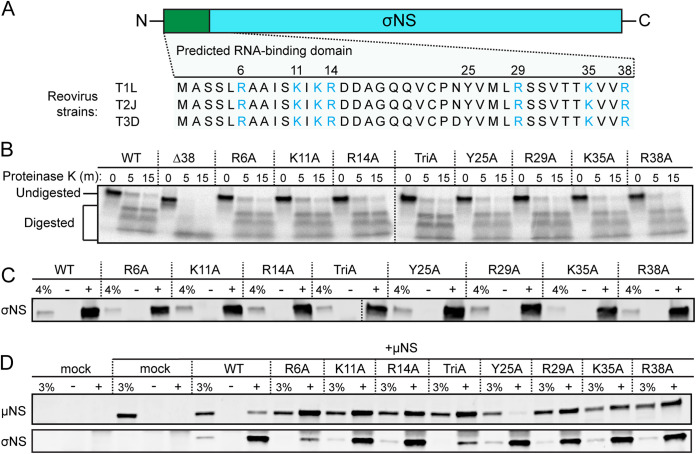FIG 1.
Mutations in σNS do not appear to alter protein folding. (A) Sequence alignment of the N-terminal 38 amino acids (green bar) of σNS encoded by mammalian reovirus strains T1L, T2J, and T3D. Positively charged residues are shown in blue. (B) 35S-labeled in vitro-expressed σNS was incubated with proteinase K for the times shown, resolved by SDS-PAGE, and visualized by autoradiography. HEK293T cells were transfected with σNS alone (C) or cotransfected with σNS and μNS (D) and incubated for 24 h. Total protein in cell lysates was immunoprecipitated using an IgG isotype antibody (−), conformation-specific σNS-specific monoclonal antibody 2A9 (C; +), or σNS-specific monoclonal antibody 3E10 (D; +), resolved by SDS-PAGE, and immunoblotted using antisera directed against σNS (C and D) or μNS (D). Percentages of total lysates in the immunoprecipitation reactions (4% [C] or 3% [D]) were used as loading controls.

